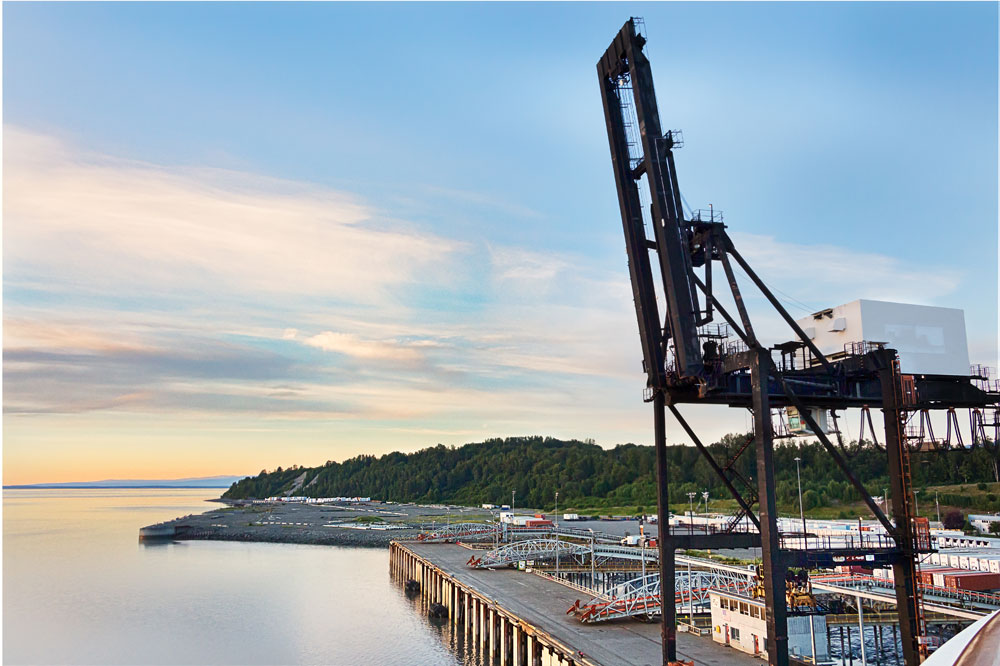
An agreement announced recently between Sandia and the Port of Alaska demonstrates the partners’ commitment to increasing energy reliability and resilience, as well as transitioning to a clean-energy economy in the Arctic.
The memorandum of understanding announced May 23 at the ArcticX Summit launches a joint evaluation of the potential for renewable-energy resources and markets for improving power systems within Alaska’s Upper Cook Inlet.
The Port of Alaska, located on Upper Cook Inlet, handles half of all Alaska inbound freight. Infrastructure failures at the port increase costs and delay shipping schedules. According to the Upper Cook Inlet Marine Alliance, such failures can also lead to statewide disruptions in the distribution of fuel and freight, including food. Port officials are interested in renewable-energy and grid-modernization technologies as a pathway for improving the efficiency and resiliency of its operations, as well as for supporting new business development opportunities.
“We look forward to working with the Port of Alaska to better understand the technical, regulatory and financial challenges to improving the port’s power systems and the value of exploring different renewable-energy scenarios,” said Andy McIlroy, Sandia’s associate labs director for Integrated Security Solutions. “Our goal is to provide reliable, actionable assessments that will allow this region to thrive as both Arctic and global conditions continue to evolve in response to climate change.”
Sandia will draw on its capabilities in renewable-energy technologies, microgrids, technology and life cycle assessment, and market analysis to identify and assess different renewable-energy deployment scenarios. This work will also build on the knowledge and experiences Sandia has gained from over 25 years of research and development in the Arctic.
“The Arctic is critical for understanding and advancing climate science and security,” Andy said. “Sandia sees partnerships as key for addressing the complicated issues facing this important region.”